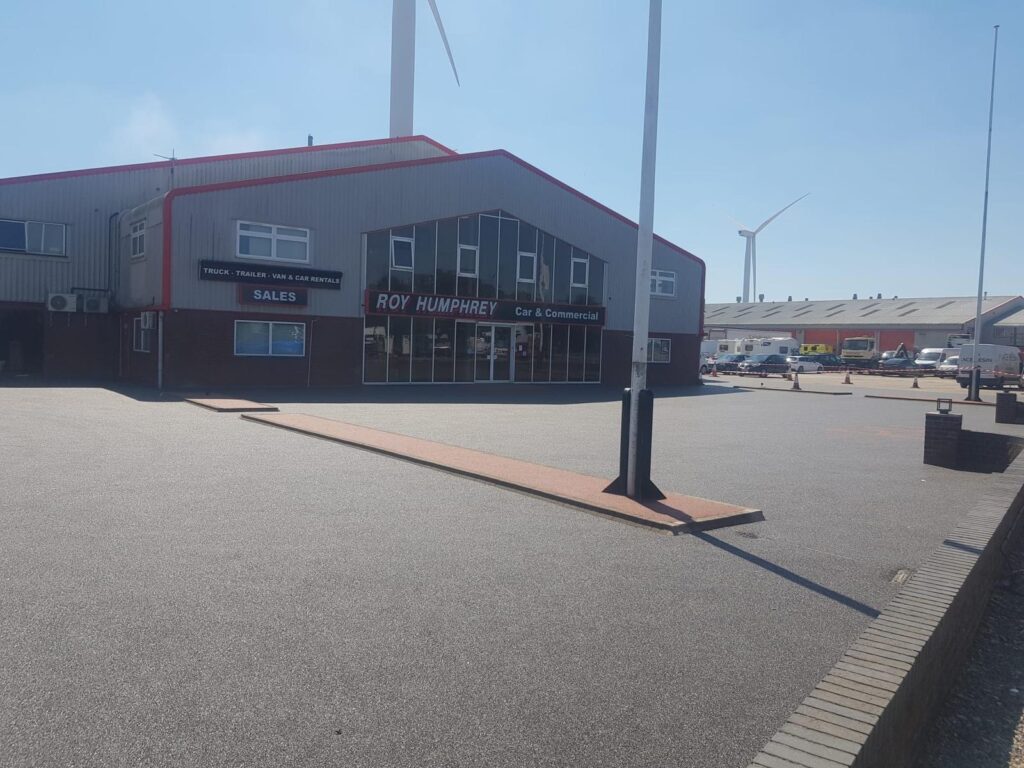Imagine a parking lot where rainwater soaks into the ground instead of pooling into puddles, where surfaces stay cooler on hot days and where maintenance hassles are a thing of the past. Sounds too good to be true? Permeable parking lots are turning this vision into reality.
In this guide, we’ll explore what permeable parking lots are, their top benefits, the best materials to use and why they’re quickly becoming the go-to solution for sustainable parking.
What Are Permeable Parking Lots? A Quick Guide
Permeable parking lots are designed to let water flow right through the surface, reducing runoff and easing drainage challenges. Made with materials like resin-bound gravel, permeable pavers, or porous asphalt, these systems allow water to seep into the ground. This not only helps manage stormwater but also keeps your lot compliant with Clean Water Act (CWA) standards.
Key Benefits of Permeable Parking Lots
1. Better Stormwater management
- Natural Drainage: Water infiltrates the surface, reducing flood risk and easing pressure on municipal drainage systems.
- Erosion Control: With water moving through the pavement, soil erosion is minimized.
2. Eco-friendly & Sustainable
- Reduced Runoff: Fewer pollutants are washed into nearby waterways.
- Groundwater Recharge: Natural water absorption helps replenish local aquifers.
3. Cooler, Safer Parking Areas
- Heat Island Reduction: Permeable surfaces absorb less heat than traditional pavement.
- Enhanced Safety: A smooth, slip-resistant finish makes these safe for both vehicles and pedestrians.
4. Regulatory Compliance & Cost Savings
- ADA & CWA Standards: Meets accessibility guidelines and water quality regulations.
- Lower Drainage Costs: Fully permeable systems can eliminate the need for additional drainage infrastructure.
Best Materials for Permeable Parking Lots
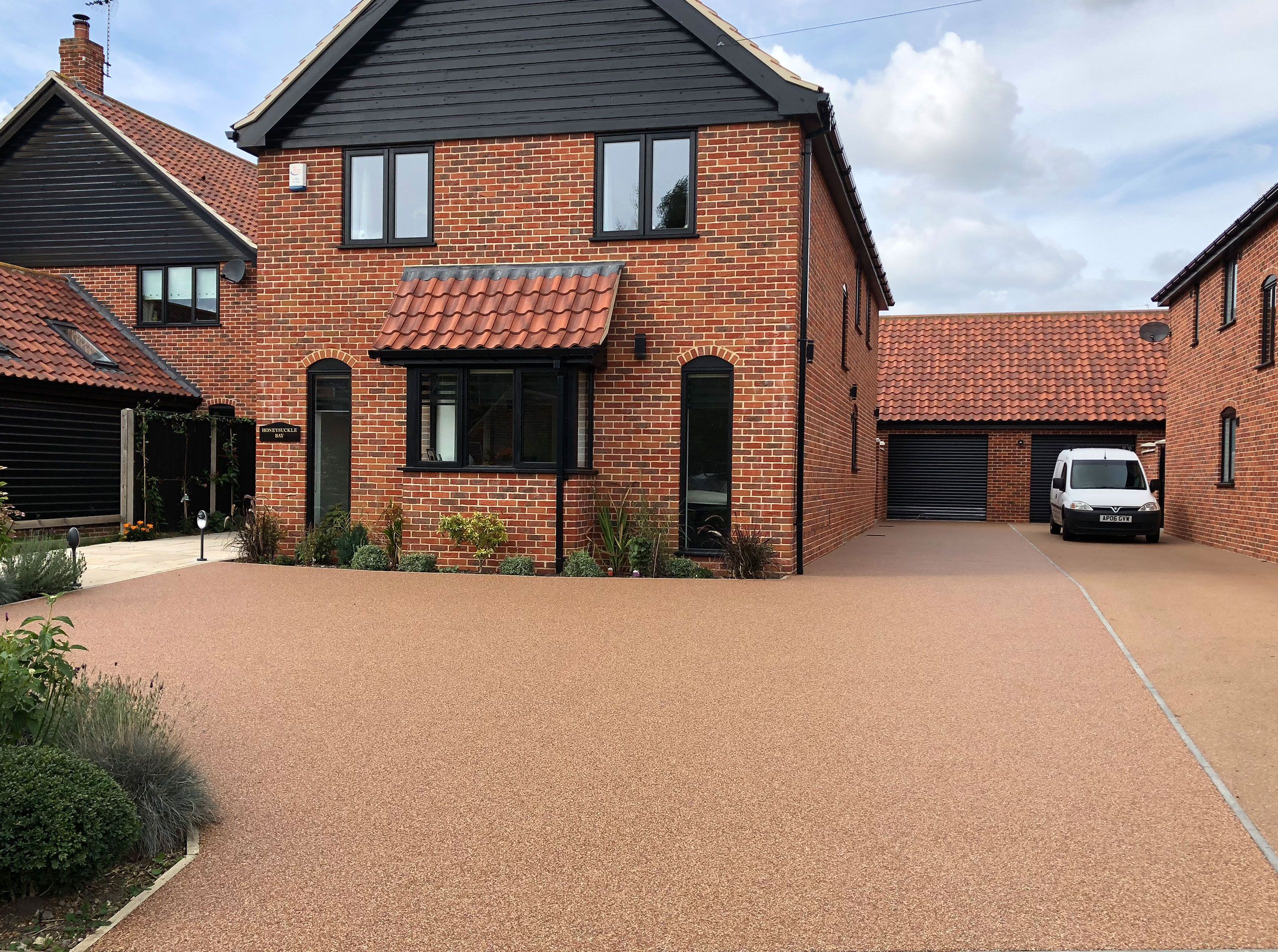
Resin Bound Paving
- Why It Stands Out: Combines aggregates with polyurethane resin for a smooth, durable, and fully permeable finish.
- Usage: Offers excellent longevity, aesthetic flexibility and requires minimal maintenance.
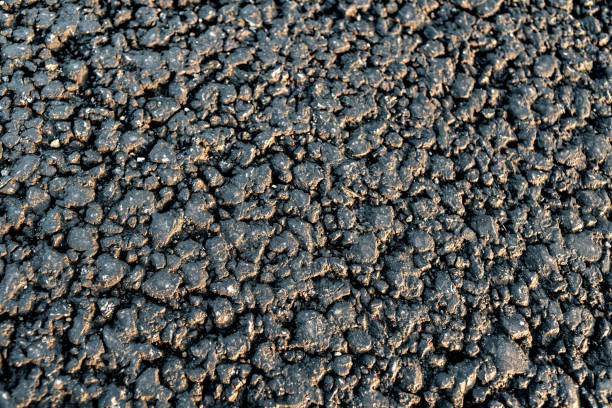
Porous Asphalt
- Why It Stands Out: Formulated with voids to promote water drainage.
- Usage: Commonly used in high-traffic zones.
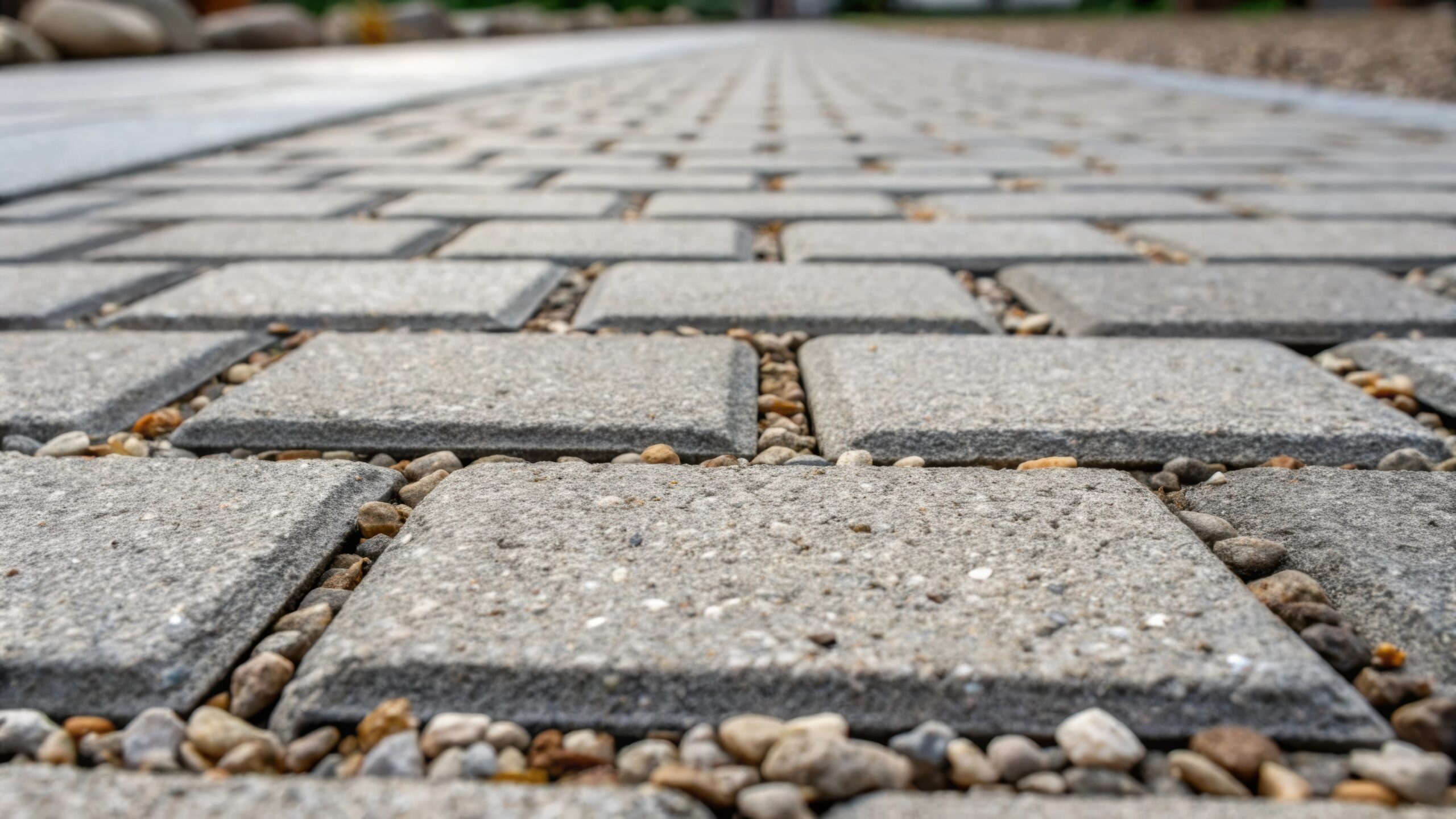
Permeable Pavers
- Why It Stands Out: Interlocking concrete blocks with gaps that allow water to drain through.
- Usage: Ideal for both residential and commercial parking areas.
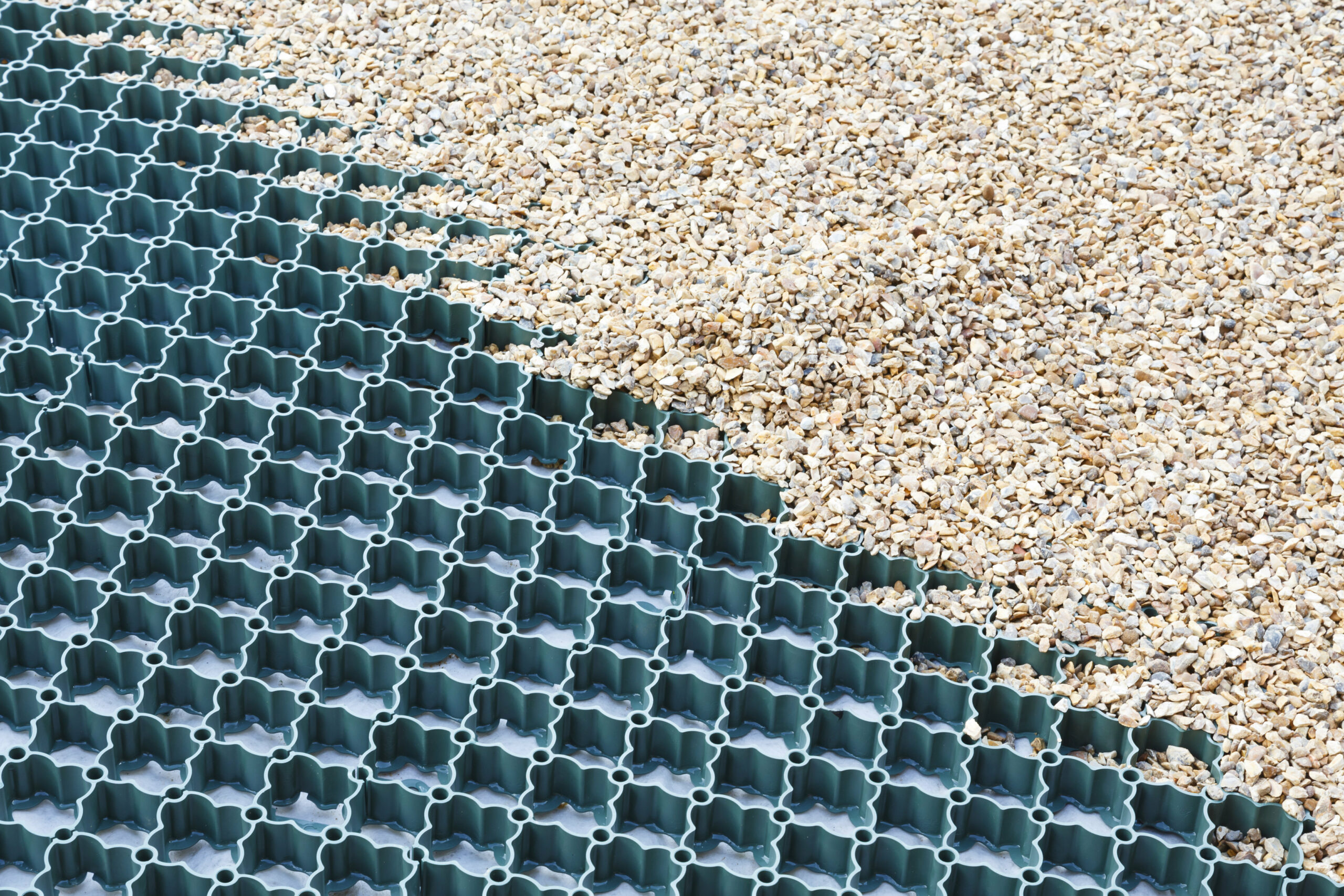
Permeable Parking Pads
- Why It Stands Out: Gravel-based system, often reinforced with geotextiles.
- Usage: Provides a cost-effective solution for smaller lots.
Enhancing Drainage in Commercial Parking Lots
Even with permeable surfaces, some parking lots may need extra drainage support. Consider these options:
- Trench & French Drains: Direct excess water away from critical areas.
- Catch Basins: Collect runoff from impermeable sections and channel it into permeable zones.
- Concrete Encased Basins: Ideal for high-traffic areas, offering extra durability where it’s needed most.
Ready to Upgrade Your Parking Lot?
Don’t settle for outdated, high-maintenance surfaces. Take action now and transform your parking area into a space that’s efficient, eco-friendly and built for the future.
Want to learn more about resin-bound? Chat with one of our experts to find the perfect solution for your project.
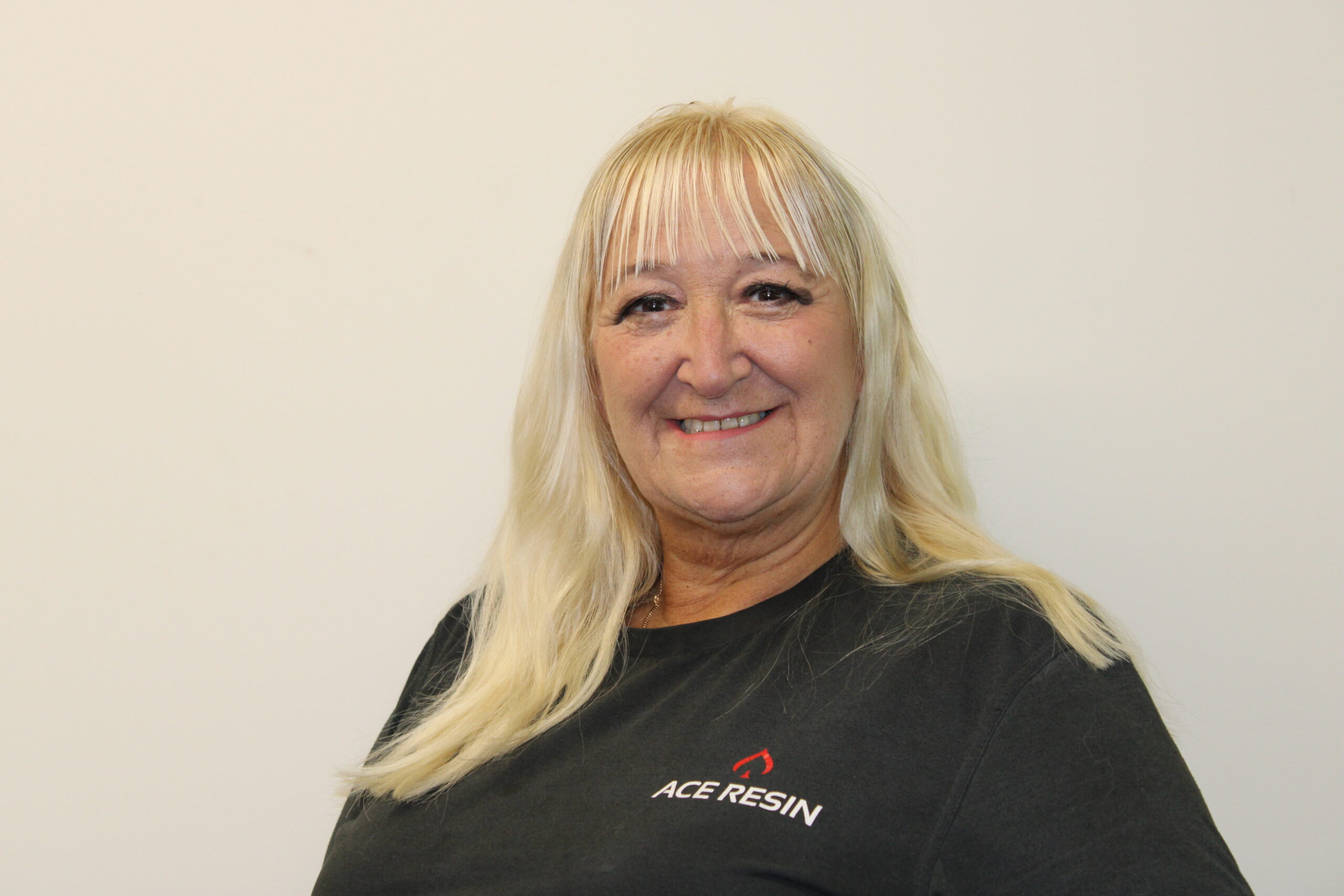
Donna Jones
Head of Sales
Donna Jones, Head of Sales at Ace Resin, has 40 years of construction experience, including two decades pioneering resin-bound surfacing. Passionate about innovation and sustainability, she leads Ace Resin’s U.S. expansion, helping contractors elevate their projects with premium, eco-friendly solutions and expert training.
